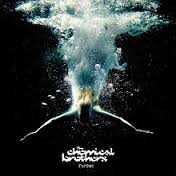further
英 [ˈfɜː.ðər]
美 [ˈfɝː.ðɚ]
- adv. 进一步地;而且;更远地
- adj. 更远的;深一层的
- vt. 促进,助长;增进
使用频率:

记忆方法
记忆单词“further”可以使用以下方法:
想象“further”的“f”像是向前的箭头,“ur”代表一个正向的推进动作,“ther”可以想象为“there”的简化,意味着进一步向那个方向前进。这样,“further”就可以形象地理解为“进一步向前走”或“更远的地方”。
想象“further”的“f”像是向前的箭头,“ur”代表一个正向的推进动作,“ther”可以想象为“there”的简化,意味着进一步向那个方向前进。这样,“further”就可以形象地理解为“进一步向前走”或“更远的地方”。
以上内容由AI生成, 仅供参考和借鉴
中文词源
further 较远
用做far的比较级。
英语词源
- further
-
further: [OE] Etymologically, further is simply a comparative form of forth, and originally meant nothing more than simply ‘more forward’. Its more metaphorical senses, ‘in addition’ and ‘to a greater extent’, are secondary developments. It was formed in the pre-historic Germanic period, and so has relatives in other Germanic languages, such as German vorder. Its verbal use is apparently equally ancient.
=> forth - further (adv.)
- Old English furðor, forðor "to a more advanced position, forward, onward, beyond, more distant; farther away; later, afterward; to a greater degree or extent, in addition; moreover," etymologically representing either "forth-er" or "fore-ther." The former would be from furðum (see forth) + comparative suffix *-eron-, *-uron- (compare inner, outer).
Alternative etymology (Watkins) traces it to Proto-Germanic *furthera-, from PIE *pr-tero- (source also of Greek proteros "former"), representing the root *per- (1) "forward, through" (see per) + comparative suffix also found in after, other. Senses of "in addition, to a greater extent" are later metaphoric developments.
It replaced or absorbed farrer, ferrer as comparative of far (itself a comparative but no longer felt as one). Farrer itself displaced Old English fierr in this job; farrer survived until 17c., then was reduced to dialect by rival farther. "The primary sense of further, farther is 'more forward, more onward'; but this sense is practically coincident with that of the comparative degree of far, where the latter word refers to real or attributed motion in some particular direction." [OED] - further (v.)
- Old English fyrðran, fyrðrian "to impel, urge on; advance, promote, benefit;" see further (adv.). Compare Middle Low German vorderen, Old High German furdiran, German fördern, probably from their respective adjectives via the notion in phrases such as Old English don furðor "to promote." Related: Furthered; furthering. After the further/farther split, this sense also continued in a shadow verb farther (v.), attested from 16c. but apparently dying out 19c.
- further (adj.)
- Old English furðra "further, greater, superior," probably a prehistoric derivative of further (adv.). Compare Old Frisian fordera, German vorder "that is before another." In early Middle English it also meant "earlier, former, previous;" a great-grandfather was a furþur ealdefader (12c.), and a previous wife was referred to legally as a forther wife.
权威例句
- 1. The room was quiet; no one volunteered any further information.
- 房间很安静,无人主动提供更多的信息。
- 2. His style could scarcely be further removed from that of his predecessor.
- 他的风格几乎和他的前辈如出一辙。
- 3. Now we live further away from the city centre.
- 现在我们住得离市中心更远了。
- 4. As the baby suckles, a further supply of milk is generated.
- 婴儿吮吸时,会有更多的奶水流出来。
- 5. He went even further in his speech to the conference.
- 他在大会发言中作了更进一步的阐述。